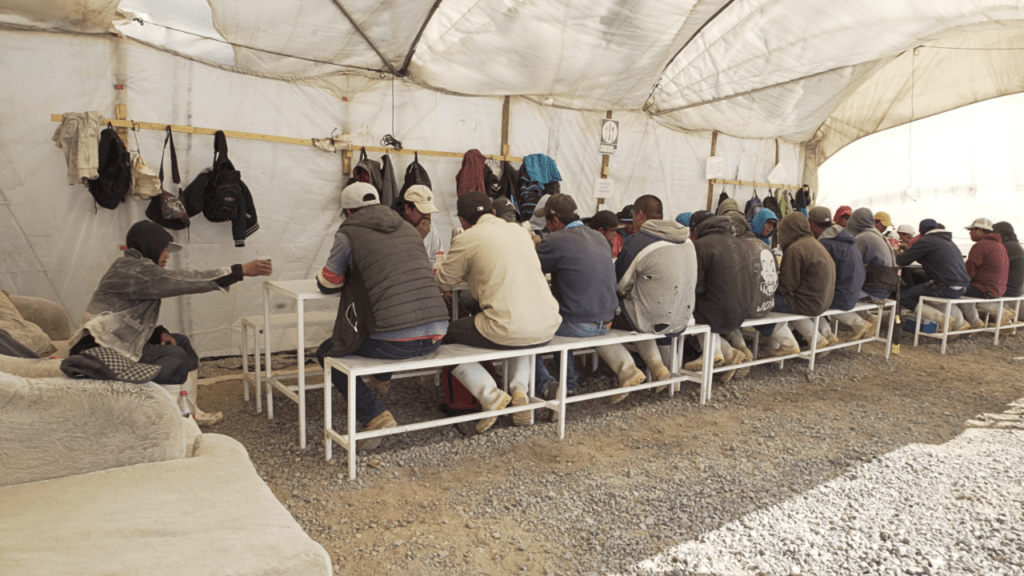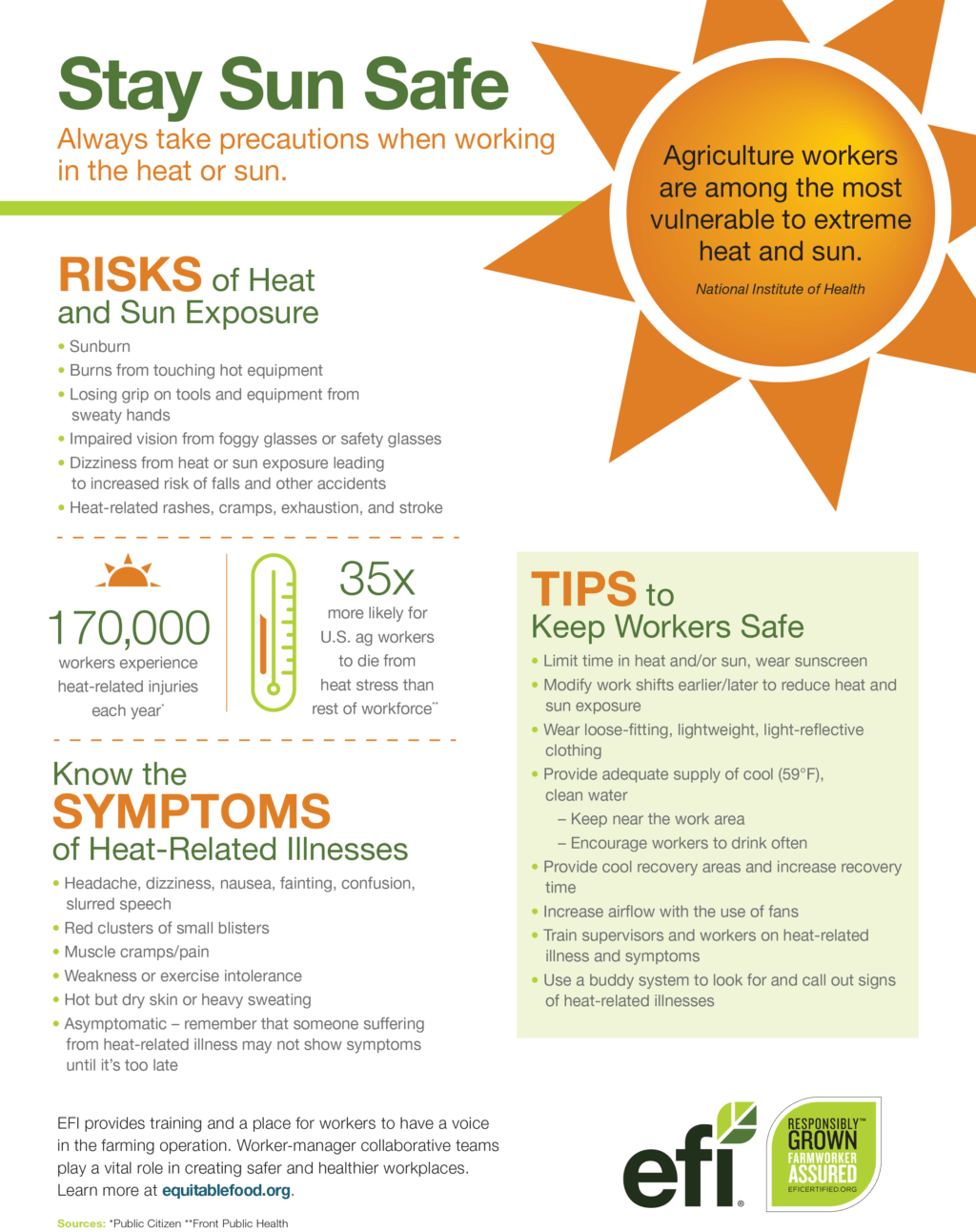[one_half]
EFI Certification Equips a Skilled Workforce to Respond to Change
Projections estimate that by 2050, the number of days farmworkers in the United States will be exposed to extreme heat conditions will double.
In the absence of national standards surrounding exposure to heat for outdoor workers, socially responsible companies must create their own guidelines for ensuring safe work environments in the heat.
Taking action to prevent heat-related illness is especially important for agriculture companies, as their workers are at an elevated risk due to the strenuous nature of their jobs and extended time working outdoors. Agriculture workers die from heat stress at a rate of 35 times greater than the rest of the U.S. workforce, according to the National Institutes of Health.
Risks of Heat Illness for the Agriculture Worker
Symptoms from even the beginning stages of heat-related illness such as fatigue, dizziness, and loss of balance and coordination can contribute to workplace accidents.
[/one_half]
[one_half_last]
Using heavy machinery or navigating a ladder while disoriented invites more accidents. In fact, a report by PublicCitizen found that there is a 1% increase in workplace injuries for every increase of 1° Celsius.
While early stages of heat exposure can usually be remedied without medical care by resting in the shade, drinking water and adjusting the pace of work, ag workers are still at risk of long-term health issues. Anecdotal evidence shows U.S migrant farmworkers are developing chronic kidney disease at younger-than-average ages, brought on from kidney strain from dehydration.
By taking proactive, preventative action and building in systems to maintain safe working conditions that integrate worker voice, socially responsible companies can protect their workers and prepare their organizations to adapt as needed to changing circumstances.
EFI Certification Helps Protect Workers as Risks Increase and Change

Access to Breaks, Shade and Water Through EFI Standards
As Farmworker Justice’s COO Ron Estrada put it in a recent op-ed calling for national heat protection standards, “[Protecting workers from heat is] not that hard: The key to safeguarding workers from excessive heat are water, shade, and breaks.”
The EFI Standards require access to drinking water and shaded areas with required breaks during high heat conditions.
Fair Wages and the EFI Bonus Incentivize Workers to Work Safely
Research is beginning to examine the ways that managing pay arrangements in response to changes in extreme heat may help lower heat exposure for farmworkers.
The EFI bonus offers farmworkers on EFI-certified farms compensation for adhering to EFI Standards, providing extra economic margin. When workers have the security provided by fair working conditions, they are more free to listen to their bodies and respond when they start to feel effects from unsafe heat conditions, rather than push through for the sake of productivity and piece-rate income.
Improved Communication Can Raise Awareness of Occupational Risks and Hazards and Invite Feedback for Solutions
The EFI certification program creates communication systems that reach all workers, in all languages. These systems can facilitate communication about the risks of heat exposure and preventions such as use of protective clothing, knowing the signs of heat illness and knowing one’s rights as a worker.
The EFI Leadership Team approach gives all workers the opportunity to contribute to identifying problems at work and innovating effective solutions.
While the exact conditions of the future challenges for agriculture companies regarding heat may be unknown, having an EFI-trained worker-manager collaborative team helps businesses respond quickly and with innovative solutions to evolving circumstances.
As a CEO of an early adopting EFI-certified company put it, “EFI is more than a certification – it is a change management program. Introducing the skills and concepts from the EFI program into our workforce enabled us to bring everyone together to strive for the highest standards.”
Find out more about how EFI certification can help your company improve workplace heat safety strategies and be in a strong position to adapt to change.
Written by Amy Beth Dingle, freelance writer for EFI


